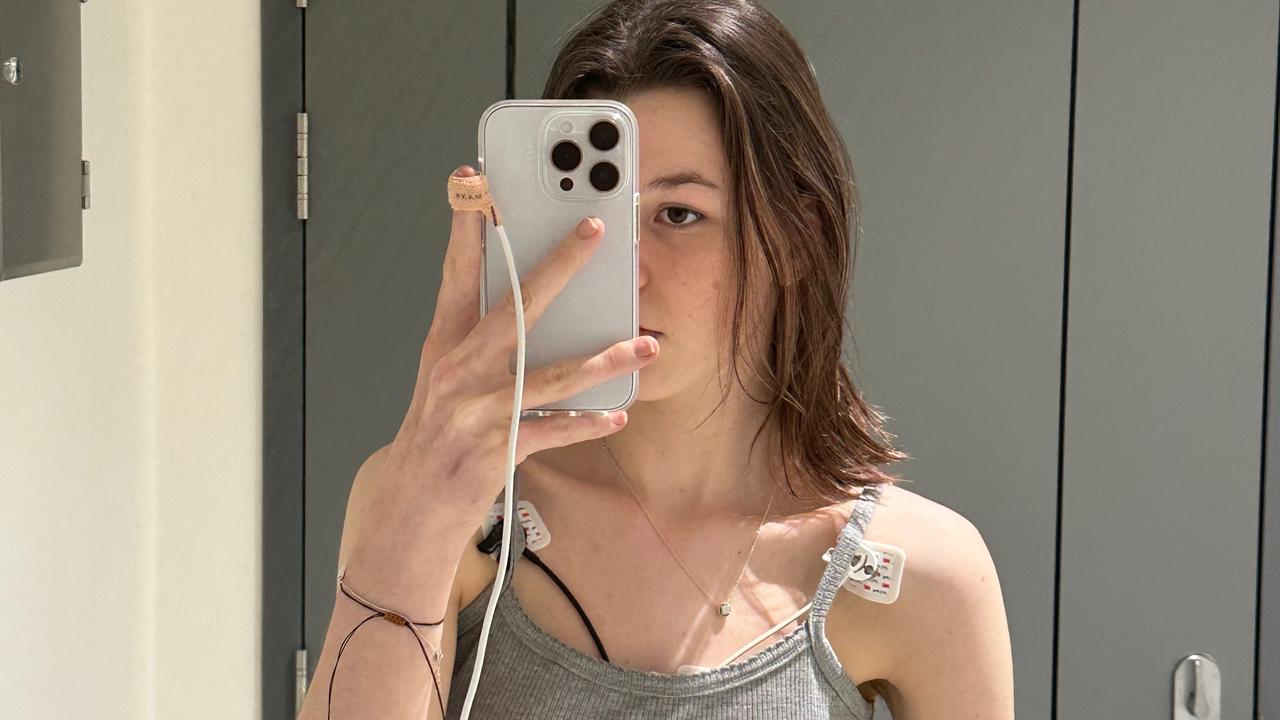Coronavirus SA: Surge in QR code use after SA Police crackdown
Only one fine was issued during a week-long crackdown on QR code check-in compliance, but police have declared the operation a success.

Only one fine was issued during a week-long crackdown on COVID-19 check-in compliance, but police say a record uptake made the operation a success.
Another 560 people and 80 businesses were issued with warnings during Operation Trace, Police Commissioner Grant Stevens said on Friday.
“What we have seen, though, is a huge uptake by the community of South Australia in using QR codes and it’s given us an indication as to what that daily number of activities should be around QR codes,” he said.
“This is an opportunity for the South Australian community to understand their obligation, comply with that obligation and do their part in making sure that we are prepared to respond to COVID-19 if it does find its way into South Australia.”
The one fine was issued to a person who was running a massage parlour in the western suburbs.
They received the $1060 individual fine rather than the $5000 business fine because the business was not registered and did not have an ABN.
Mr Stevens said he considered the operation to be a “huge success”.
“I can say that I think the take-up from this very strong message resulted in people’s compliance lifting significantly from day one, which is why we didn’t have to issue those expiations,” he said.
Official figures reveal a record number of South Australians are using the state’s electronic COVID-19 check-in system after the crackdown.
State Government data obtained by The Advertiser shows a 55 per cent surge in quick response (QR) code use following the week-long police blitz.
Since last Thursday, plainclothes officers have targeted compliance in “dozens and dozens” of businesses and monitored patron scanning.
Latest figures from the Department of Premier and Cabinet, which manages the encrypted data for SA Health, show 6.78 million check-ins in the week leading up to the crackdown.
In the first seven days of the operation, up until Wednesday, that number rose sharply to 10.55 million, surpassing the previous peak of 8.7 million in a key Christmas shopping week in mid-December.
Under state law, every SA business must have visible codes and ensure patrons check in. Before the operation people were strongly urged, but not legally enforced, to record each business they visit.

Mr Stevens announced the new offensive due to widespread “complacency” with the state’s electronic coronavirus contact tracing database.
Warning failures could threaten SA’s relaxed pandemic rules, his intervention came after authorities raised concerns over a 20 per cent fall in usage earlier this month.
An Advertiser poll in early March found a majority of the public were failing to use the codes that authorities say are vital to track people in any potential outbreak.
Mr Stevens, who as state COVID co-ordinator authorises legal directions based on various pieces of advice, will today reveal the number of fines and cautions for breaches or failures to check in.
He has warned “blatant” or continual refusal to check in would result in fines of $1060 for individuals or $5060 for businesses.
Police also have the power to charge serious, repeat offenders with breaking emergency management laws.
Burnside Village shops and patrons have been targeted as has the Adelaide Central Market.
Speaking after Tuesday’s Transition Committee meeting, Mr Stevens flagged the crackdown could continue past today.
He revealed “significant levels of increased compliance” after officers visited “dozens and dozens” of businesses, and said he was pleased with the public response. There have been no security breaches of the QR system. Records are routinely deleted to protect users’ privacy.
Police recorded names of people failing to check-in.
“I am very pleased the community has responded to this alert we have put out,” Mr Stevens said.
“There is no doubt that QR code compliance is a significant factor in being able to relax restrictions.”
QR code use peaked over a week in mid-December when there were more than 8.7 million check-ins.
SA Health is preparing to launch special behavioural research into whether a fall in QR code use can be blamed on what officials fear is “pandemic fatigue”.
The Auditor-General is also reviewing the database’s features and security.
Up to 10 DPC staff with national security clearances manage the data and in an outbreak, a top SA Health official requests access for up to 50 authorised contract tracers.




